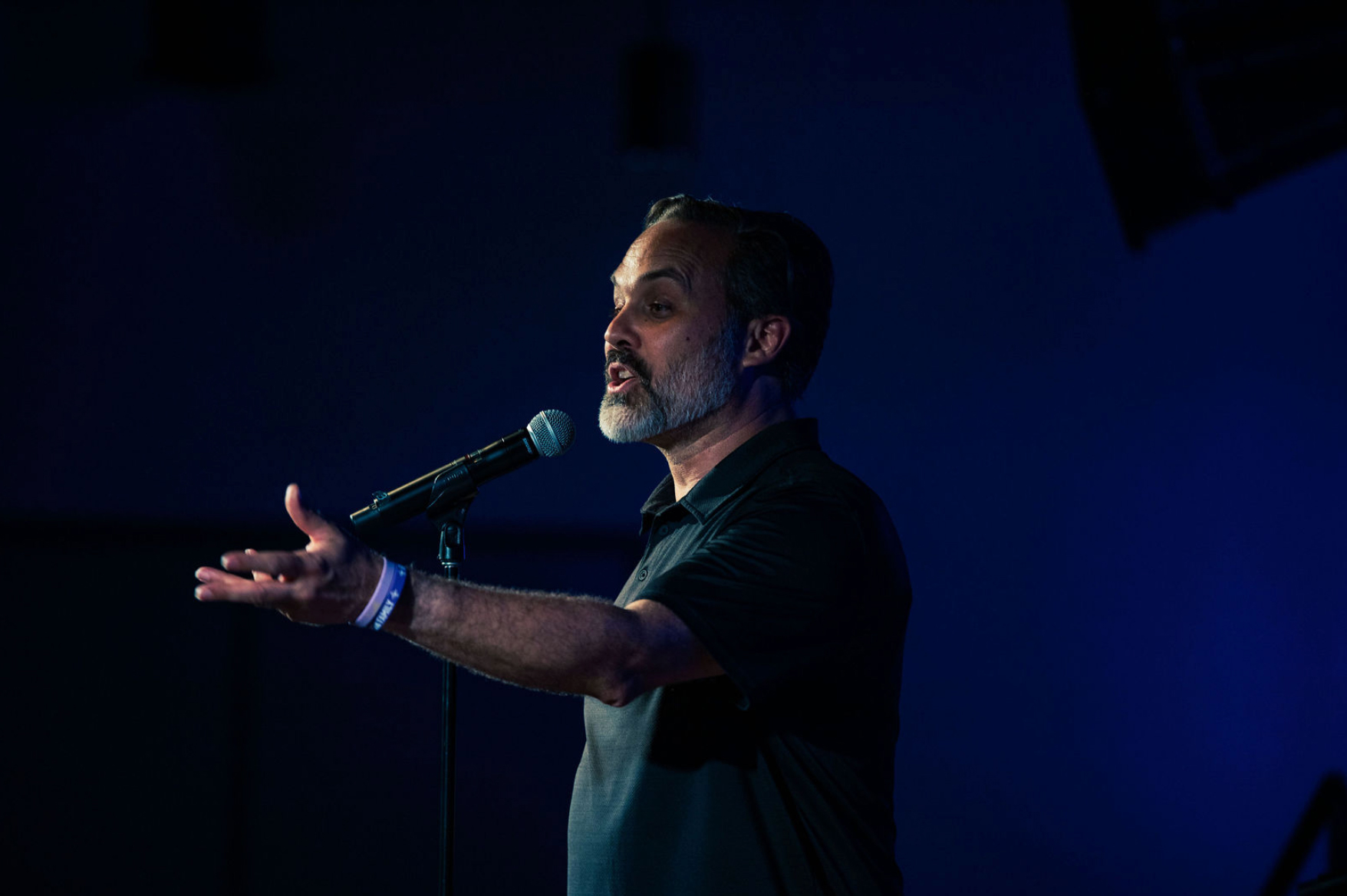This fall, Dallas once again becomes a crossroads of Latinx voices as Cara Mía Theatre launches its 2025–26 season with the sixth-annual Latinidades Festival & Symposium. Running Sept. 27 through Oct. 12, 2025 at the Latino Cultural Center, the festival has grown into the largest international Latino theater gathering in Dallas. As Cara Mía enters its 29th season, executive artistic director David Lozano frames the festival as a vehicle for expanding Dallas’ cultural imagination, rather than only a showcase of Latin American artistry.
This year’s Latinidades begins with a free kick-off celebration on Sept. 27, designed to turn the entire Latino Cultural Center campus into a cultural playground. Outdoor performances, an open market, live music, and a revival of the beloved DaVerse Lounge Bilingüe — a high-energy mix of spoken word, live band, and dance-theater — will stretch from plaza to black box and every viable space in between.
Lozano says the idea of using the whole campus stems from wanting “a festival where people can roam and mingle and experience different cultures and performances. It creates that sense of discovery.”
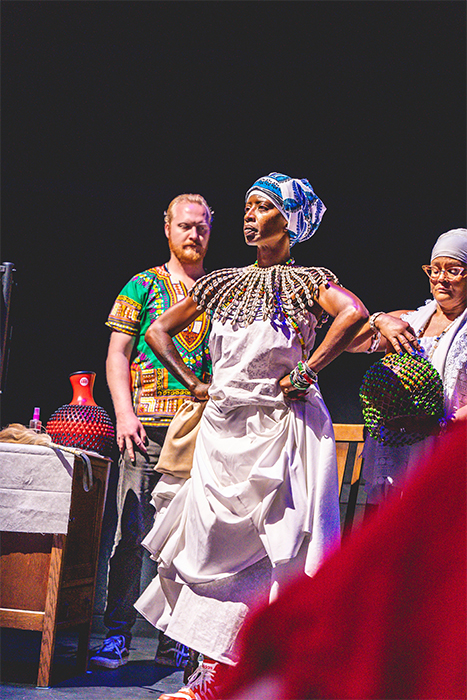
1 ⁄6
Yemaya Flamenco with Director & Dancer Michelle Gibson (center), Ethan Worland (musician), Nana Sula (Right). Photo courtesy of the artists.
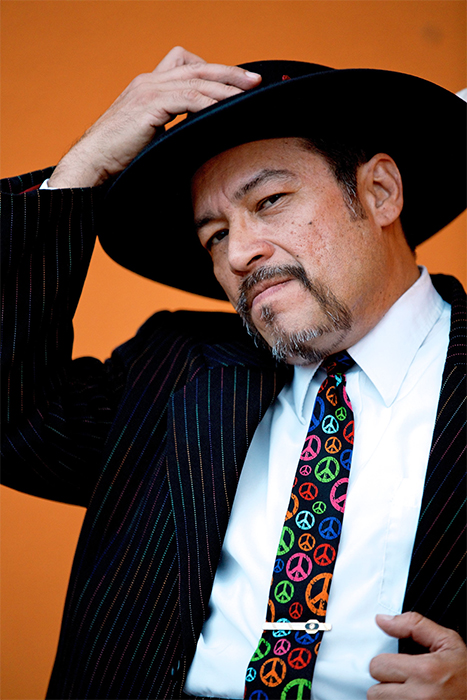
2 ⁄6
Writer & Director Rodney Garza - El Pazchuco For Prez. Photo courtesy of the artist.
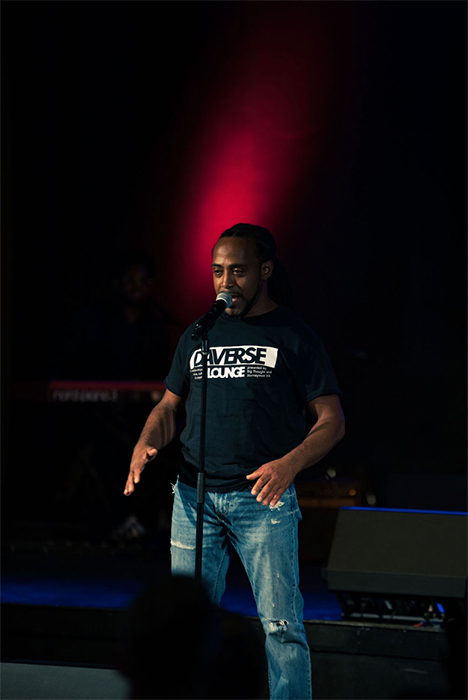
3 ⁄6
Alejandro Perez from DaVerse Lounge. Photo courtesy of the artist.
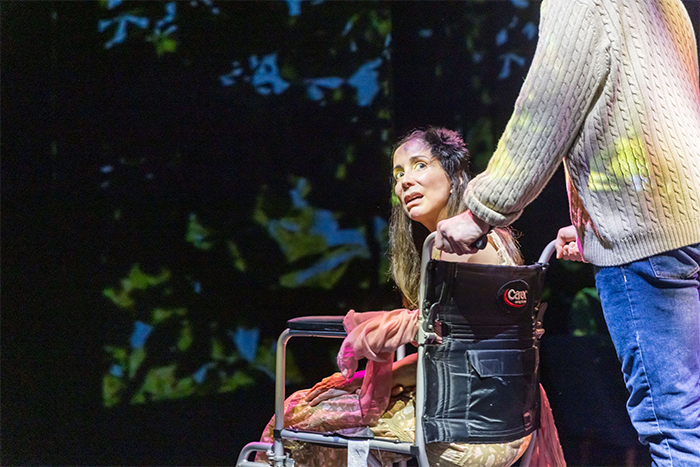
4 ⁄6
Writer & Lead Actor Rebeca Aleman - The Delicate Tears of the Waning Moon. Photo courtesy of the artist.
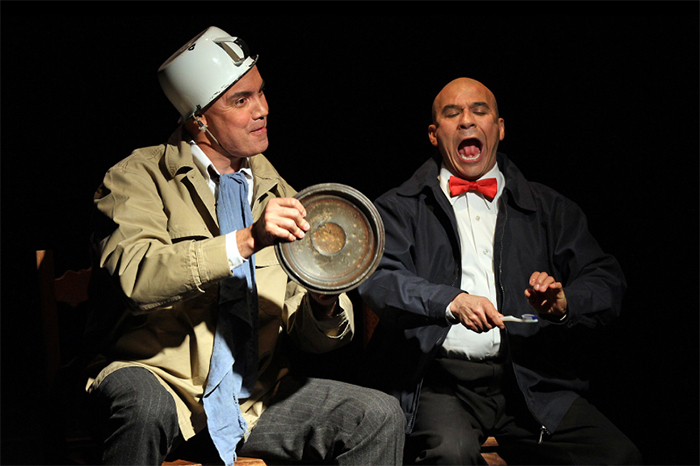
5 ⁄6
La Razon Blindada. Photo courtesy of the artist.
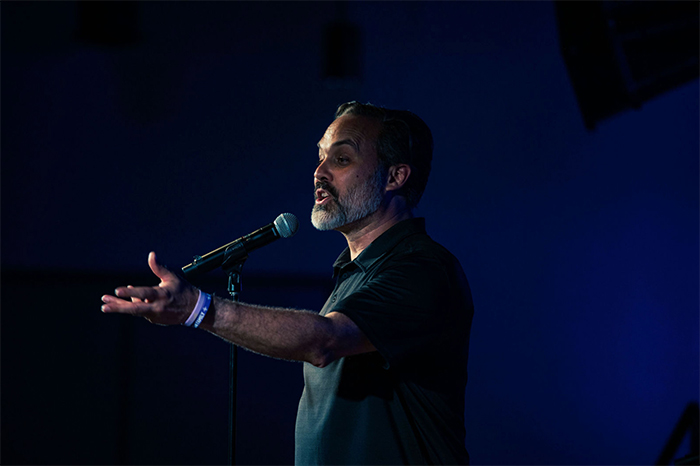
6 ⁄6
Will Richey from DaVerse Lounge. Photo courtesy of the artist.
The return of DaVerse Lounge carries special weight for him. Nearly three decades ago, its co-founders, Will Richey and Alejandro Perez, staged artist nights in an old barn — now the site of One Arts Plaza — that became a hotbed for bilingual poetry, freestyle music, and midnight improv. “We’d go until 2 or 4 am,” Lozano laughs. “Now everyone has families, but bringing it back in this form means creating a space where all ages can gather, and where anyone can perform or sing in any language.”
The festival’s centerpiece is four mainstage productions that reflect the diversity of contemporary Latin American theater.
The Delicate Tears of the Waning Moon from Chicago’s Water People Theater runs Oct. 2-5, 2025. Written by Rebeca Alemán and performed by Venezuelan artists in alternating nights of Spanish and English, it tells the story of Paulina, a Mexican journalist who survives a brutal attack while investigating femicide. Lozano has seen the play twice before: “It’s incredibly powerful. The writing is sparse, almost poetic, so you really sit with the story. The projections of the moon mark time in such a simple, moving way. By the end, Paulina is left to judge her own actions — was it worth it to stand up for the truth? That question resonates far beyond Mexico.”
On Oct. 3–4, 2025, San Antonio’s Guadalupe Cultural Arts Center brings El Pachuco for Prez, Rodney Garza’s satirical romp through “American politricks.” Lozano calls it essential comic relief. “We need the laugh! It’s a sharp political satire, but also fun and full of social commentary. Why not imagine that the solution to our political woes is a self-styled pachuco in a zoot suit who rhymes and turns politics into a party?”
Closing the festival is the world premiere of Yemayá Flamenco (Oct. 11–12, 2025), a transnational collaboration led by Dallas dancer-director Michelle Gibson and produced by Cara Mía, Dallas’ The Flame Foundation, The New Orleans Original BuckShop, and Mexico’s Mulato Teatro. The piece traces the African roots of Spanish, Latin American, and New Orleans dance, music, and ritual. “When you learn these histories, you realize we’ve been sharing the same rhythms for centuries,” Lozano explains. “You begin to see that Black is Latino and Latino is Black. New Orleans is as much a part of Latin America as Mexico. This show embodies that idea of unity, ending in a second-line-style procession that brings the audience onstage. It’s about breaking barriers and realizing we all belong here.”
“The title is a statement, but for me it’s really a question,” Lozano says. “How will the arts thrive in this historic moment of uncertainty? Last year it became clear how important mentorship is — those relationships teach us things you can’t learn from a book. This year we’re diving deeper into that, along with funding, AI, and collective dreaming.”
That notion of dreaming is central. Lozano recalls a moment when Cara Mía’s playwright-in-residence Virginia Grise told him, “Theater is a place where you dream in worlds.” For him, the symposium is just that: a collective dream space. “When we come together across generations and cultures, we’re building the future of our arts ecosystem. That’s what sustains us.”
—LINDSEY WILSON

